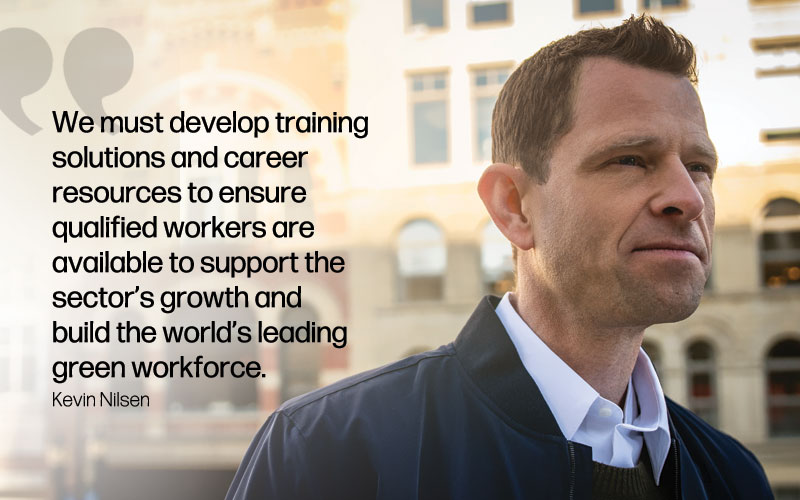Account Login
Don't have an account? Create One

As the steward for the Canadian environmental workforce, driving and promoting responsible, sustainable economic growth is at the core of ECO Canada’s organizational DNA. And despite the challenging times we find ourselves in, its President & CEO, Kevin Nilsen, is resolved. Why? Because, in the face of COVID-19’s undeniable effects on Canada-wide employment, the environmental sector has continued to thrive with a five per cent increase across its workforce.
“Seeing the environmental sector stay on a steady growth pace even through the devastating impact of the pandemic is a promising sight, because it shows that environmental protection, natural resource management and sustainability are a non-negotiable priority,” said Nilsen.
According to the organization’s latest Labour Outlook report, while Canada’s employed labour force shrank in 2020, the environmental sector workforce increased by roughly five per cent, with potential to increase by 17 per cent by 2025. On top of that, environmental workers are present in every Canadian region, industry and practically every occupation according to the report, with about one in 26 workers in Canada (689,000 workers) in a green job.
“The environmental workforce is made up of those in many sectors, from agriculture, to energy, to forestry, to manufacturing. Green talent is needed in a variety of environmental fields, from air quality, to natural resource management, to environmental policy and legislation,” noted Nilsen.
Talent being the key word when it comes to the sector’s growth. According to the report, a significant driver of job growth will be replacement demand, as ECO Canada estimates around 2.8 per cent of the current workforce will retire every year in the next five years. Together, job growth and workforce retirements will result in 173,000 net environmental job openings by 2025, which is a quarter of 2020 employment levels.

“There is a pressing need for current workers to reskill and upskill to make up for the expertise that the retiring workforce is taking with them,” said Nilsen. “But we will also need to bring in more environmental workers to fill the critical gaps that are coming in the labour market. We must develop training solutions and career resources to ensure qualified workers are available to support the sector’s growth and build the world’s leading green workforce.”
Developing such resources is what makes up the majority of ECO Canada’s work. The organization works alongside governments, policy makers, industry, and academia to champion the end-to-end career of environmental professionals and support the nation as a global leader in environmental innovation and jobs. Its services hit every touch point in the environmental workforce from coast-to-coast – from educational development, to certification and soft skills training.
While the continued growth during the pandemic is encouraging, Nilsen says now is not the time for complacency with workers needed in climate change, economic growth, digitalization, and clean technology solutions. “Our economic recovery depends on us developing such solutions and putting people and their talents to work in environment-related fields.”
And according to Nilsen, Canada must go beyond the idea generation mindset if we want to take hold of the opportunities in these high growth areas. “Take the clean technology sector for example – we are great at generating ideas in this space and developing them into promising technologies, but we’re behind other countries in getting those ideas to market,” he said. “We need to ensure we grow and nurture talent that is focused on finishing the house and living in it, not just building great foundations and stopping there.” Job funding like the Digital Skills 4 Youth program is a useful resource that organizations can leverage to help support the current and future talent demands of the growing cleantech sector.
“Though the pandemic has affected every area of the economy, the outlook is more promising for the environmental sector,” Nilsen concluded. “With the Government of Canada investing in a green and innovative economic recovery, we believe that the environmental labour force will continue to thrive – whatever comes its way.” •
Comment policy
Comments are moderated to ensure thoughtful and respectful conversations. First and last names will appear with each submission; anonymous comments and pseudonyms will not be permitted.
By submitting a comment, you accept that Atlantic Business Magazine has the right to reproduce and publish that comment in whole or in part, in any manner it chooses. Publication of a comment does not constitute endorsement of that comment. We reserve the right to close comments at any time.
Cancel